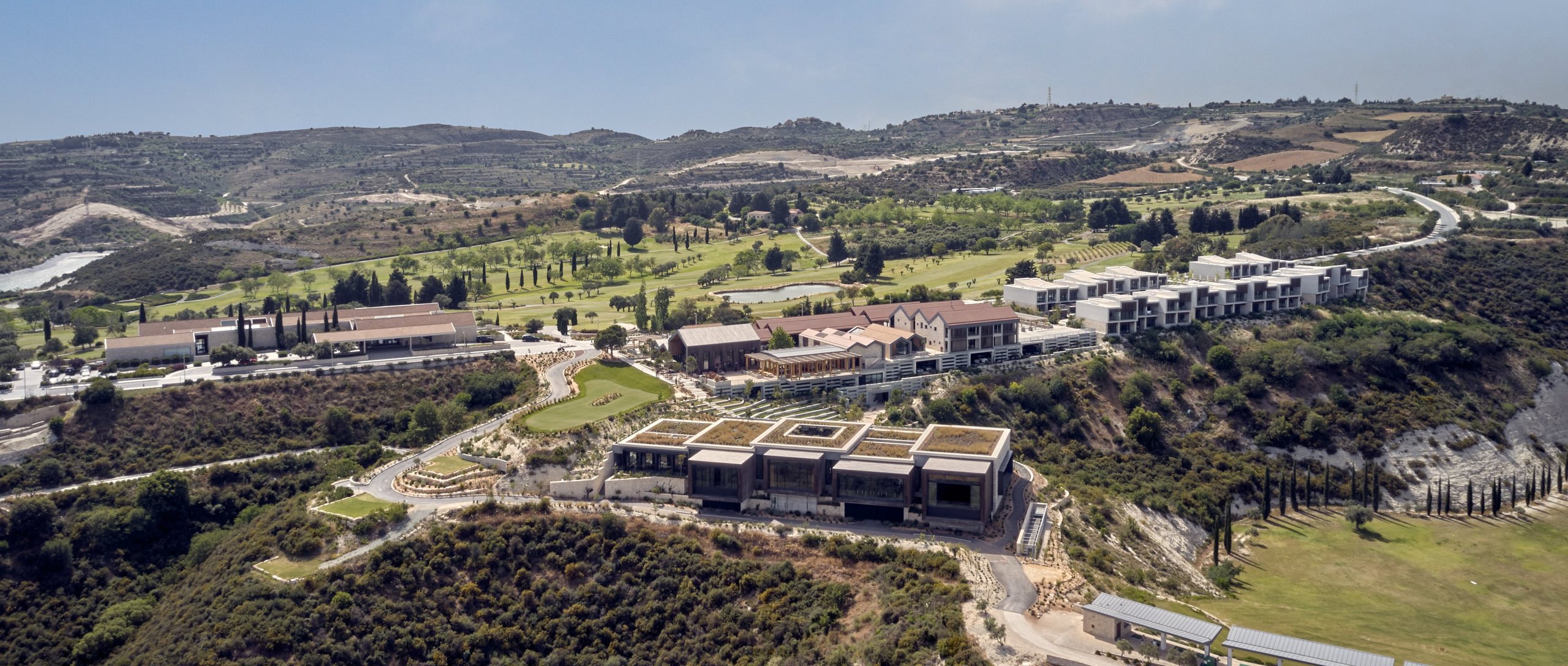Buying a home in Cyprus is a dream come true for many, but once you’ve been handed the keys, the real work often begins. Whether you’re freshening up the paintwork or embarking on a full-scale renovation, learning how find tradespeople in Cyprus can feel daunting – especially in a country where both language and systems work a little differently.
From knowing where to look to understanding local customs on everything from pricing to payment, this guide will help you navigate the process with confidence. Whether you’re still based in the UK or have already relocated to the island, we’ll show you how to find skilled professionals, avoid costly mistakes and get those little (or big) jobs done right.
Contents

Where to begin your search for tradespeople in Cyprus
If you’re just starting your property journey or managing it remotely, you may struggle to know where to find tradespeople in Cyprus. Unlike in the UK, there’s no single, centralised trade directory – but that doesn’t mean there’s a shortage of qualified workers.
A good first step is to explore dedicated online platforms geared towards expats and English speakers in Cyprus. Websites such as Cyprus Property Buyers Alliance or forums like Cyprus Forum can be useful places to browse early listings and user feedback. Be aware that some of these platforms operate on reputation rather than formal regulation, so double-check how up-to-date the listings are.
Social media groups – especially Facebook communities – are also a rich source. Try searching for local expat groups such as “Paphos Expats”, “British in Larnaca” or “Limassol Living”, where newcomers often ask for – and receive – personal recommendations from others who’ve walked the same path.
If you’re in Cyprus already, you’ll notice how many small businesses advertise the old-fashioned way: by pinning cards or flyers in local supermarkets, bakeries or hardware stores. Estate agents, both Cypriot and British-run, can also introduce you to contractors they or their clients have worked with successfully.
For a deeper look at purchasing property abroad, download your free copy of Cyprus Buying Guide:
Download the Cyprus Buying Guide
Using recommendations to find tradespeople in Cyprus
The best way to find tradespeople in Cyprus is still good old-fashioned word of mouth. Cypriot society is incredibly community-focused – people talk to each other before they turn to Google. Use this to your advantage by asking locals, neighbours or fellow expats who they’ve used and whether they were satisfied with the results.
In fact, many tradespeople in Cyprus rely entirely on word-of-mouth referrals and repeat business. It’s not uncommon for your gardener to recommend a cousin who’s an electrician or be married to a woman who does domestic cleaning. It’s a close-knit culture, and tapping into those networks can fast-track your way to trustworthy services.
If you do find someone online or through printed directories, don’t just take their advert at face value. A quick chat with a neighbour (especially if they’re also foreign-born property owners) can help verify whether the business is known locally – for the right reasons.
Also, don’t be surprised if tradespeople come to you. It’s fairly common for Cypriots to knock on your door offering services without asking – especially if they’ve been working nearby and noticed your house might need attention. While this approach can feel unusual, many of them bring legitimate experience. Just treat them like you would any other unknown contractor: ask for references and take your time before agreeing to work.
Getting quotes and understanding prices
Once you’ve found a few potential candidates for your project, the next step is to get quotations. As with anywhere, prices can vary dramatically – even for the same job. To get a fair deal, collect quotes from at least three tradespeople. Let each one know you’re comparing, which tends to prompt more precise and competitive pricing.
A good quotation in Cyprus should include: cost of materials, an estimate of labour hours, expected timescales and VAT or tax. Don’t accept vague ballpark figures scribbled on the back of a receipt – ask for a breakdown in writing. If you speak little or no Greek, try to find someone who can explain it clearly in English, or bring a bilingual friend to help translate.
Some long-established craftsmen – especially older ones – may not offer formal paperwork but can still be highly skilled. Many would have learned their trade through hands-on family businesses and may have gained their entire experience through practical work rather than formal qualifications. This isn’t necessarily a bad thing, as attention to detail and craftsmanship often run deep in trades passed down through generations.
Prices tend to be lower than in the UK, but that’s not to say you won’t encounter inflated quotes – particularly if they assume you’re new to the island. To avoid this, be curious. Ask what’s included, why they recommend certain materials over others, and what the timeline will look like.
Checking credentials and experience
Trade certification isn’t as heavily regulated in Cyprus as it is in other countries, but you should still take reasonable steps to ensure that the person you’re hiring is competent, legal and safe. For major structural work, electrics or plumbing, you should ideally look for contractors registered with the local authorities or professional syndicates – such as the Technical Chamber of Cyprus (ETEK). You can check ETEK’s website to see if someone is professionally registered.
However, don’t be surprised to find excellent tradespeople who aren’t formally listed. In such cases, client references and a solid work portfolio become extremely important. Ask to see photos of recent jobs, or better still, visit a site they’ve worked on. Many will eagerly show you their work in action – it’s a strong point of pride in much of Cypriot trade culture.
If a contractor comes recommended by your neighbour or property manager, take their word seriously – but still do your due diligence. It’s wise to check whether they hold liability insurance and what warranty, if any, they offer on completed work.
Avoid working with anyone who refuses to offer up references or fails to answer basic questions about timelines and duties. A trustworthy professional will be used to these queries and happy to reassure you. After all, they also want happy customers who will recommend them again.
Handling payment and paperwork like a local
When it comes to payment in Cyprus, expect things to feel more informal than what you’re used to. While VAT may be charged (and should be if the tradesperson is registered for it), many contractors still prefer to be paid in cash. Often, this helps them avoid delays or banking fees – especially in small towns or rural areas where card payments aren’t the norm.
Don’t panic if you’re asked to pay in full – but always be cautious. For bigger jobs, it’s perfectly acceptable to agree on staged payments. For example, 30% up front, 30% at the halfway point and the remainder upon completion. Just make sure this is written down and agreed in advance.
Request a receipt for any payments – especially cash – and keep these for your own records. While this might feel like an awkward step at first, it’s totally normal and protects both sides in case of a misunderstanding later on.
For tax and paperwork purposes, if you’re planning major renovations or registering a property as a rental, keep detailed records of every contractor used and all costs involved. These can come in handy for deductions or resale tax planning later down the line.
Finally, while tipping isn’t standard practice for tradespeople in Cyprus, showing appreciation for good work – perhaps with a small gift or warm thank-you – goes a long way. Cypriots value relationships first, and a little goodwill can often earn you lower prices or priority help when the next project comes up.
Start your Cyprus renovation journey with confidence
Ready to turn that characterful village house or modern flat into a home that suits your lifestyle? Finding the right help is easier than it first seems – especially with local know-how and a bit of patience. At Your Overseas Home, we have decades of experience helping buyers settle abroad confidently and cost-effectively. From expert advice on finding the right partners to organising essential services and guides, we’re here to help every step of the way.
Start your journey and book a call with one of our property consultants today.
FAQs about finding tradespeople in Cyprus
Start by exploring local expat forums, Facebook groups, and platforms like Cyprus Property Buyers Alliance. Supermarket noticeboards, estate agents and neighbour referrals are also great ways to discover trusted tradespeople.
Yes. In Cyprus, word of mouth is still the most trusted method. Locals and fellow expats often share referrals, and many tradespeople rely entirely on personal networks and repeat business.
Ask for a written quote that includes material costs, labour, timelines and VAT. Collect at least three estimates, and don’t hesitate to question anything that seems vague or unusually expensive.
For major work, look for registration with bodies like the Technical Chamber of Cyprus (ETEK). If they’re not certified, ask for references, photos of past work or even a site visit to see their work in action.
Many tradespeople prefer cash, especially for smaller jobs. For larger projects, agree on staged payments and request written receipts. Always clarify VAT and retain paperwork for future use.









